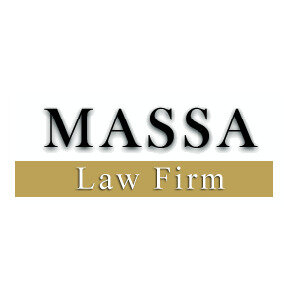Best Bankruptcy & Debt Lawyers in Bologna
Share your needs with us, get contacted by law firms.
Free. Takes 2 min.
List of the best lawyers in Bologna, Italy
Italy Bankruptcy & Debt Legal Articles
Browse our 1 legal article about Bankruptcy & Debt in Italy written by expert lawyers.
- Overwhelmed by Debt in Italy? Crisis - Legge 3/2012 Reform
- Italy allows individuals and small non-fallible businesses to wipe out or heavily cut debts using esdebitazione procedures under the Codice della crisi d'impresa e dell'insolvenza (CCII), often still called the "Save-Suicide Law". The Consumer Plan (Piano del Consumatore) is only for private individuals acting as consumers, not for entrepreneurs, and... Read more →
About Bankruptcy & Debt Law in Bologna, Italy:
Bankruptcy & Debt Law in Bologna, Italy operates within the larger framework of Italian insolvency and bankruptcy laws. Bankruptcy (fallimento) in Italy involves liquidating the debtor's assets to repay creditors. In the event that a business is unable to meet its financial obligations, legal actions are taken to protect both the creditors and the debtor. There are various forms of insolvency procedures available, including debt restructuring agreements, compulsory administrative liquidation, and over-indebtedness agreements for non-commercial entities.
Why You May Need a Lawyer:
Legal advice is crucial when facing bankruptcy or struggling with debt. A lawyer can help protect your interests, guide you through the complexities of Italian bankruptcy laws, and negotiate with creditors on your behalf. If you're a business owner, an attorney can help you understand your options and devise strategies to minimize the impact of bankruptcy on your operations. Individuals facing severe indebtedness can also benefit from a lawyer's expertise to navigate debt restructuring or insolvency procedures.
Local Laws Overview:
Bankruptcy laws in Bologna follow Italy's Royal Decree 267/1942. Key aspects include the presumption of insolvency if a party is unable to regularly fulfill its obligations, and the right for both creditors and debtors to request the declaration of bankruptcy. Several alternatives to bankruptcy exist, such as the ‘concordato preventivo’, ‘accordi di ristrutturazione dei debiti’, and procedures for ‘sovraindebitamento’ intended for non-entrepreneurs to provide options for debt restructure and agreement with creditors.
Frequently Asked Questions:
1. How long does bankruptcy proceedings take in Italy?
Bankruptcy proceedings in Italy usually take several years, but the timeframe can vary depending on the complexity of the case and the workload of the court.
2. Can debts be discharged in bankruptcy?
Not all debts can be discharged in bankruptcy proceedings. Non-dischargeable debts may include certain tax and social security debts, alimonies, and not fulfilled restitution orders.
3. Can bankruptcy be avoided?
Yes, alternatives like ‘concordato preventivo’, ‘accordi di ristrutturazione dei debiti’ and others can be used to avoid a formal bankruptcy declaration, enabling debt restructuring or settlement.
4. What happens to employees when a company goes bankrupt?
The insolvency administrator decides whether employment contracts can continue or not. If not, employees become creditors of the company for their unpaid salary.
5. Can personal assets be seized during bankruptcy proceedings?
In case of personal bankruptcy, some personal assets can be seized to pay off the debt. However, objects deemed essential for living are exempted.
Additional Resources:
The Ministry of Justice (Ministero della Giustizia) and the Chamber of Commerce, Industry, Agriculture and Handicraft (Camera di Commercio, Industria, Agricoltura e Artigianato) are good resources to understand local Bankruptcy and Debt laws in Bologna. The Italian Official Gazette (Gazzetta Ufficiale) regularly publishes information regarding bankruptcy procedures.
Next Steps:
If you require legal assistance pertaining to bankruptcy and debt in Bologna, contact a local attorney specializing in Bankruptcy and Debt Law. An initial consultation can help you understand your legal position, the options you might have, and the potential consequences of various measures. Ensure you have all relevant financial and business documents to hand, to facilitate the attorney in providing the most accurate advice possible.
Lawzana helps you find the best lawyers and law firms in Bologna through a curated and pre-screened list of qualified legal professionals. Our platform offers rankings and detailed profiles of attorneys and law firms, allowing you to compare based on practice areas, including Bankruptcy & Debt, experience, and client feedback.
Each profile includes a description of the firm's areas of practice, client reviews, team members and partners, year of establishment, spoken languages, office locations, contact information, social media presence, and any published articles or resources. Most firms on our platform speak English and are experienced in both local and international legal matters.
Get a quote from top-rated law firms in Bologna, Italy — quickly, securely, and without unnecessary hassle.
Disclaimer:
The information provided on this page is for general informational purposes only and does not constitute legal advice. While we strive to ensure the accuracy and relevance of the content, legal information may change over time, and interpretations of the law can vary. You should always consult with a qualified legal professional for advice specific to your situation.
We disclaim all liability for actions taken or not taken based on the content of this page. If you believe any information is incorrect or outdated, please contact us, and we will review and update it where appropriate.
Browse bankruptcy & debt law firms by service in Bologna, Italy
Bologna, Italy Attorneys in related practice areas.











